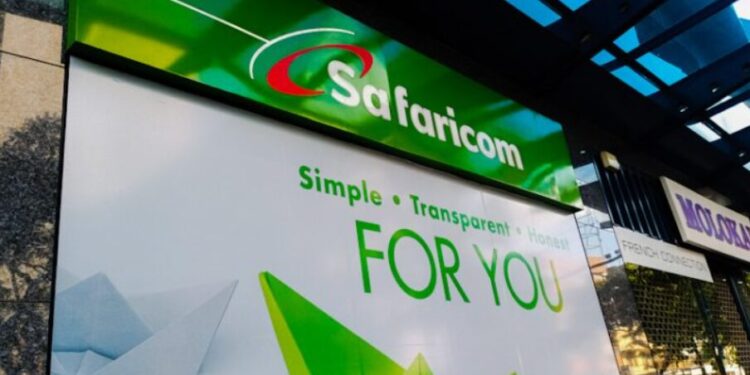Financial analysts remain optimistic about Safaricom’s stock performance, pointing to the telco’s strong earnings, diversification into financial services, and potential growth in Ethiopia.

A report from Standard Investment Bank (SIB) suggests that the company’s fundamentals remain solid, even as challenges emerge in the Kenyan and Ethiopian markets.
Safaricom’s share price stood at KSh 17.75 at Tuesday’s close, reflecting a 0.8% drop from the previous day.
While still below its all-time high of KSh 45.25 recorded in August 2021, analysts maintain that the stock remains undervalued.
The company posted a KSh 47.5 billion profit in Kenya in the half-year results released last November.
According to SIB, this performance underscores the company’s resilience and ability to navigate a shifting telecommunications landscape.
The bank estimates that the stock’s fair value is between KSh 25 and KSh 27, a view previously shared by Safaricom CEO Peter Ndegwa.
Analysts see growth opportunities in data services as smartphone penetration rises, positioning Safaricom to expand its revenues beyond voice and SMS.
The company’s move into financial services, such as insurance and money market products, is also expected to drive future earnings.
The company’s operations in Ethiopia have faced hurdles, particularly due to currency depreciation.
A sharp drop in the Ethiopian Birr led to a KSh 17.5 billion loss in the last financial year, contributing to an 18% decline in overall profits.
Safaricom has revised its break-even timeline for Ethiopia, now expecting to turn a profit in 2027.
Despite these setbacks, SIB remains positive about long-term prospects, citing opportunities in mobile money.
A report by GSMA indicates that Ethiopian consumers are eager for a well-established mobile money network, an area where Safaricom has a competitive advantage due to its experience with M-Pesa.
Reputation challenges have surfaced, with allegations that Safaricom has shared customer location data with security agencies.
Analysts warn that such concerns, coupled with lower pricing options, could accelerate customer migration to Voice Over Internet Protocols (VoIP) and Direct-to-Device (D2D) services, impacting traditional revenue streams.
Another potential disruptor is Starlink, which has gained traction in Kenya’s fixed data market.
The satellite internet provider has cut hardware costs and offers high-speed connectivity, making it a competitive player.
While Starlink’s presence is growing, analysts believe its impact on Safaricom remains limited for now, as adoption is concentrated in urban areas.
SIB notes that if satellite providers secure licenses for Direct-to-Device services, competition in Kenya’s mobile sector could intensify.
However, Safaricom’s established market position, extensive network, and financial services ecosystem provide it with a strong defensive advantage.
Safaricom’s future prospects remain tied to its ability to adapt to market shifts.
Analysts point to sustained profitability in Kenya, expansion into financial services, and potential gains in Ethiopia as key factors in its growth trajectory.
Kenyan Business Feed is the top Kenyan Business Blog. We share news from Kenya and across the region. To contact us with any alert, please email us to [email protected]













